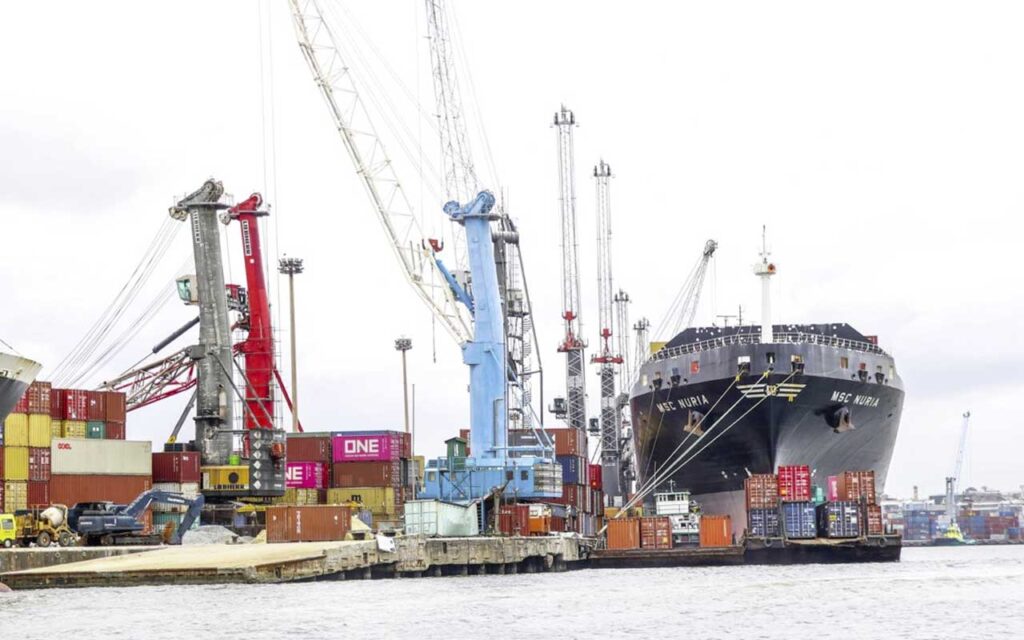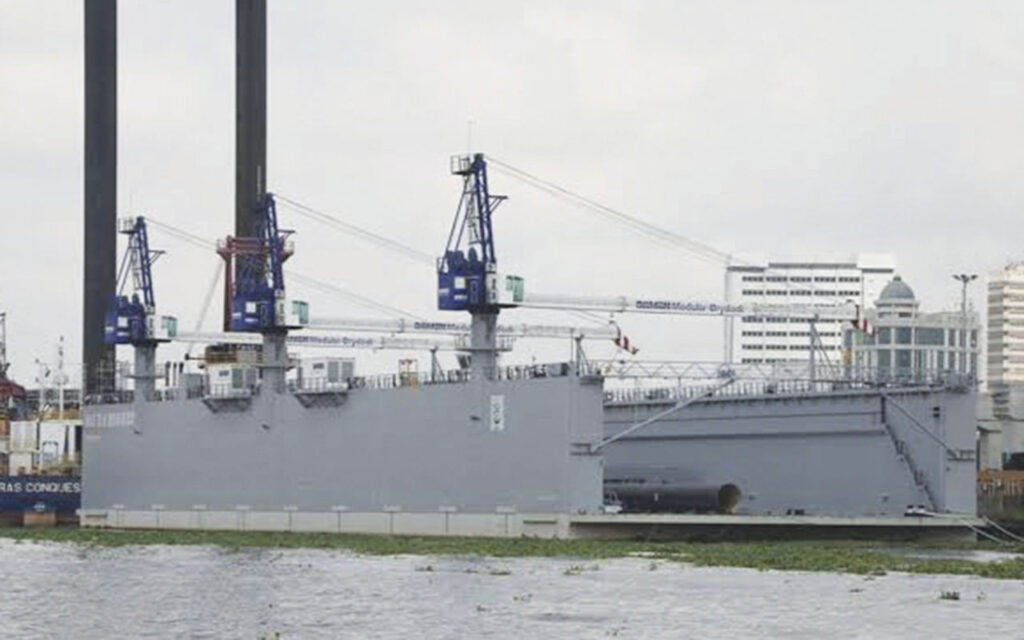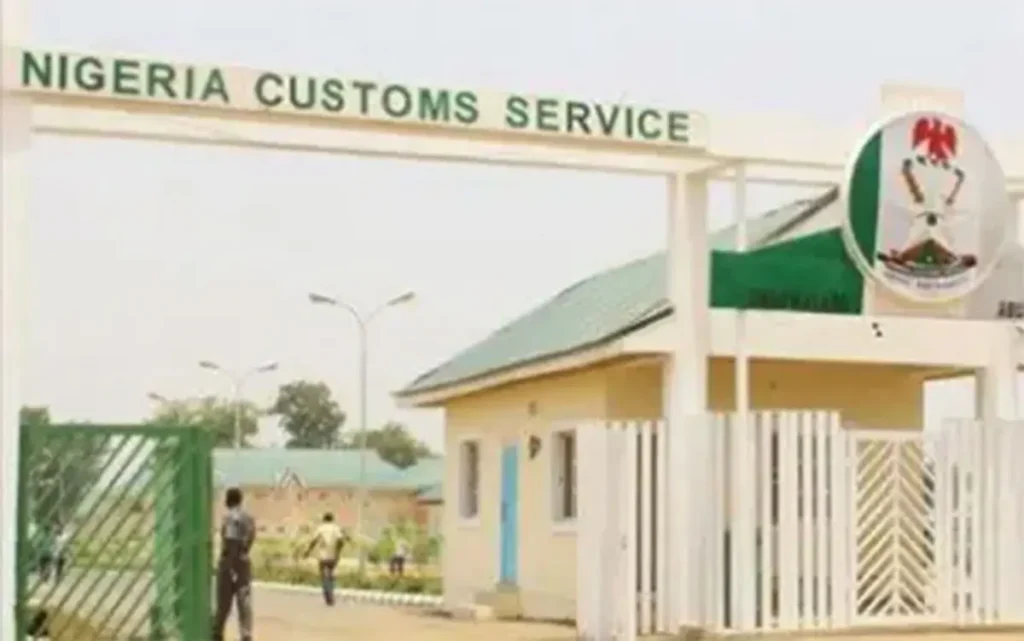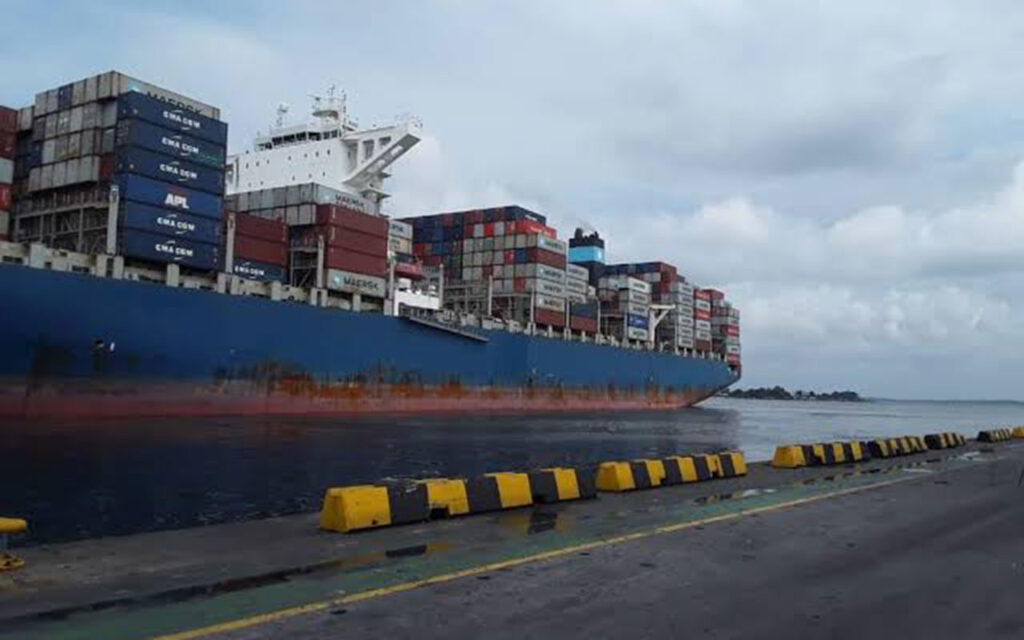A Federal High Court, Lagos, yesterday dismissed a no case submission filed by the former Director General of Nigerian Maritime Administration and Safety Agency (NIMASA), Raymond Omatseye, charged with contract scam by the Economic and Financial Crimes Commission (EFCC).
Omatseye is standing trial on an amended 27-count charge bordering on the offence. In the charge, the accused was said to have been involved in contract splitting and bid rigging estimated at over N1.5 billion.
Justice Rita Ofili-Ajumogobia yesterday dismissed his no case submission application and ordered him to answer to the charges levied against him.
Omatseye was re-arraigned on January 21, 2013 on the amended charge. He had pleaded not guilty to the charge and was granted bail.
The prosecution led by Chief Godwin Obla (SAN) had opened its case on February 4, 2013, and called a total of three witnesses.
All witnesses had given various testimonies before the court, as to the nature and form of contract, awarded by the accused, while serving as DG of NIMASA.
Obla closed the case for the prosecution on October 13, 2014.
At the close of the prosecution’s case, the accused instead of oppening his own defence rather put forward an application for a no case submission, on the ground that the prosecution failed to prove its case against him.
Defence counsel, Mr Olusina Sofola (SAN) arguing the application on behalf of his client, had urged the court to discharge and acquit the accused in accordance with section 286 of the Criminal Procedure Act.
Sofola had argued that all counts of the charge, save for counts 21 and 22, should be struck out as being incompetent.
He had argued that the act of awarding contracts was omitted from the counts, adding that the offence is actually the award of the contract, and not the approval of the contract.
Besides, Sofola had argued that exhibit PD 16 Z otherwise known as the “approved revised threshold” for service-wide application, which contained the revised monetary threshold, had no commencement date and so was unreliable.
He stressed that it must be showed that the revised monetary threshold was in force at the time the accused was alleged to have contravened the Public Procurement Act.
He had therefore, urged the court to uphold the no case submission and discharge and acquit the accused.
Delivering her ruling on the no case submission, Justice Ofili-Ajumogobia held that it was an abject misconception for the accused to contend that the offence was committed when the award was actually made.
She said: “I do not find any difficulty in agreeing with the prosecution that the counts in question, were properly drafted in accordance with the provision of the Public Procurement Act.
“It is an abject misconception for the applicant to contend that the offence is committed when the award is actually made; this would go against the spirit and letters of the criminalising section.”
The judge also held that the quoted statement of the accused to the EFCC, on the process of award of contract to the agency, constituted a prima facie evidence, which required response from the accused.
She held: “On the whole, I find this application to be lacking in merit; the applicant has failed woefully in his attempt to discredit the evidence adduced by prosecution in this case.
“At this stage of a trial, all that the court is required to do, is to satisfy itself that there is some tenable quantum of evidence before it links the accused to the offence.
“Having stated this much, the proper order which I think this court should make in the circumstance, is to dismiss this application in its entirety, and I so do.
“The applicant is therefore, called upon to enter his defence; this is my ruling as read out in open court.”
She therefore, adjourned the case to February 18 for continuation of trial.
The offence contravenes the provisions of sections 58(4) (d) of the Public Procurement Act 2007.
It also contravenes the provisions of sections 14(a) of the money laundering (Prohibition) Act, 2004.










